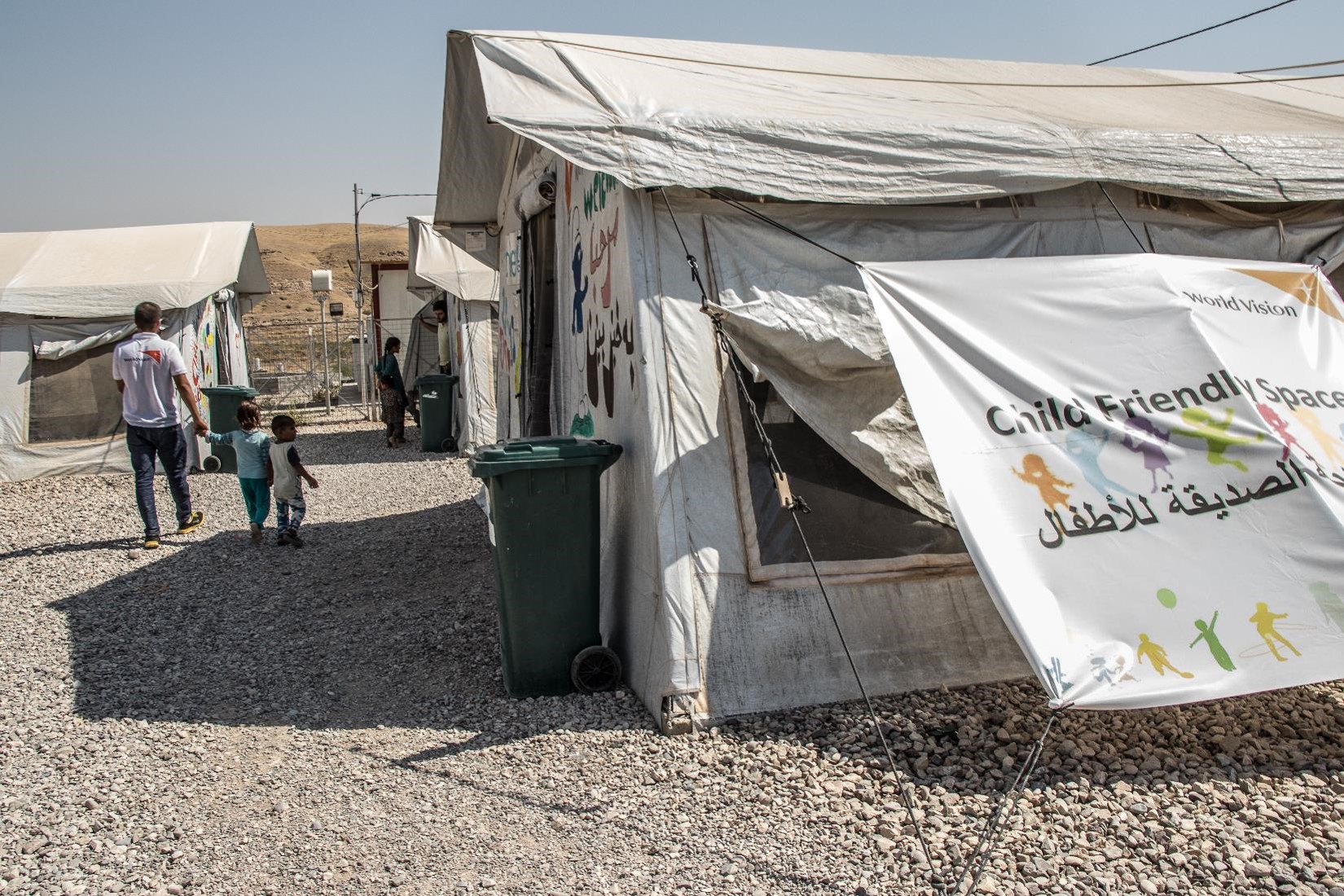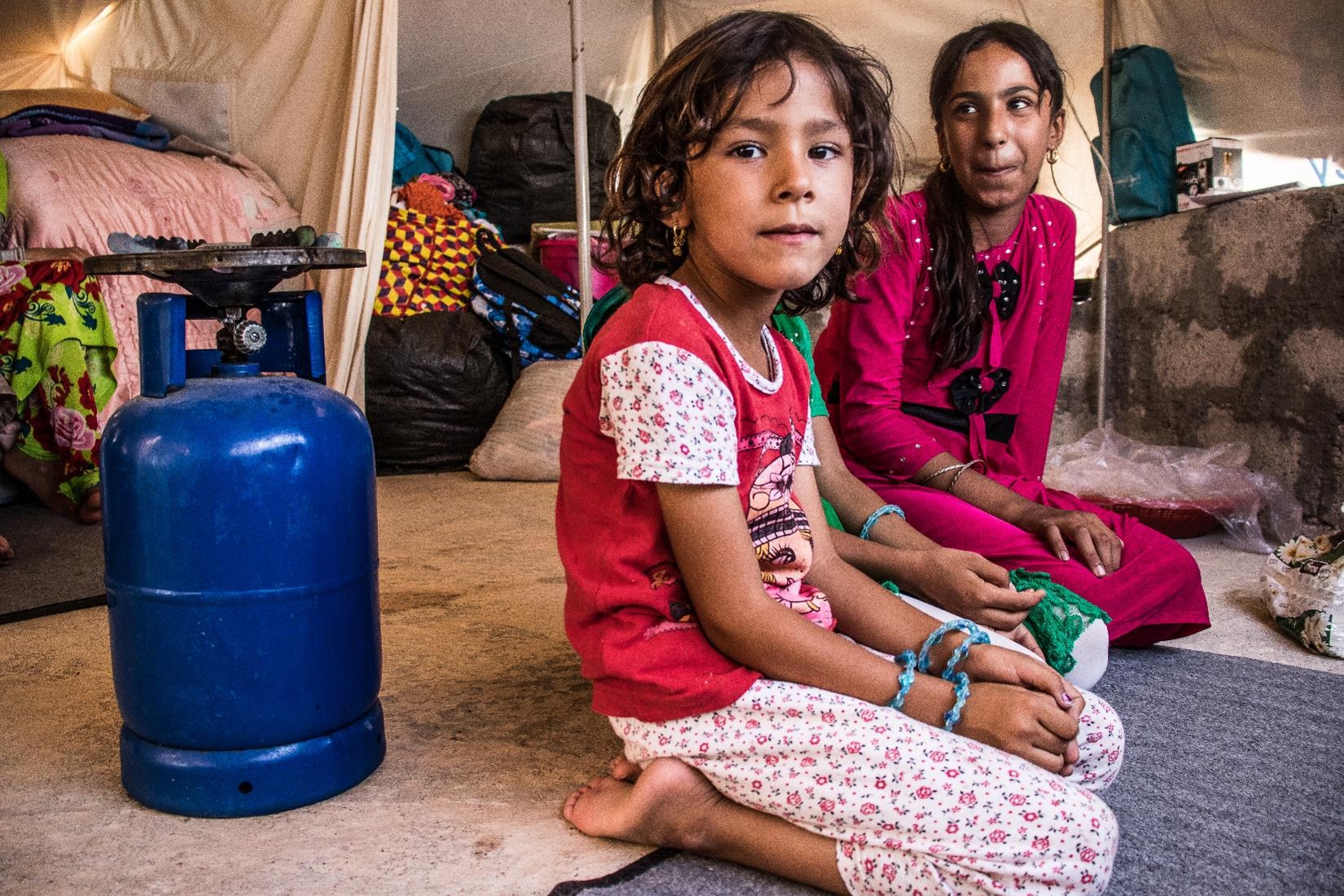“We taught our children how to survive”

Story and photos by Sacha Myers, Communications Specialist, World Vision Kurdistan Region of Iraq.
Suwadi taught his four daughters how to escape. How to survive. How to live without fear.
It was all he could do to give them the best chance of leaving Mosul alive.
“Life under ISIL was very difficult. There was no security and no safety. If they caught us escaping we would have been hung or killed in another way,” Suwadi says.
“My brother tried to escape and he was captured by ISIL. They made him run through a field of mines and he was killed. They set off the mines with a remote.
“We taught our children how to survive – how to access medical services, not to play with toys they see in the streets, and to keep a small food supply, a first aid kit and vitamins in a bag so they are ready to escape.”
When the time came to flee, Suwadi and his daughters left everything in their home. Suwadi says the most important thing was to escape. Objects didn’t matter.
Families like Suwadi’s have endured years of catastrophic conflict in Iraq. Since 2014, 3.3 million people have been forced to leave their homes and seek shelter from the fighting. Many have moved to very remote camps with basic services.
Although Mosul has been re-taken from ISIL, other cities are still under siege and families continue to flow into camps. Some people are also too scared to return to home, or cannot go back because their houses have been destroyed.
World Vision’s Non-food Items Coordinator, Idres, says families are often at their lowest point when they reach the camps – crippled by fatigue, loss and with nothing but the clothes on their backs.
“My job is to provide children and adults with the essential items they need right at the start, to get them through the first hours and days,” he says.
“We provide items such as mattresses, blankets, hygiene kits and cooking stoves. It means they have somewhere to sleep, can stay clean and can cook food.”
World Vision provided Suwadi’s family with a much-needed stove when they came to the camp. “When we first arrived we didn't have a stove or anything to cook on. We just had biscuits and vegetables,” Suwadi says.
“I was very happy when we got the stove because we could stop eating biscuits and start cooking. When we came here we received beans and rice, so when we got the stove we could start cooking them.”
Nine months on, Suwadi and his family are still in the camp. He is too sacred to return to Mosul where he fears ISIL spies are still present.
Suwadi’s daughter, Nazani, attends World Vision’s Child Friendly Space in the camp. She says it’s a place where she can learn, but also relax and forget about the war.
“We go [to the Child Friendly Space] in the afternoon. We learn English and Arabic,” Nazani says.
“I really like learning from books. I've been learning about health and safety and how to see the land mines from the war. I have been taught that if I see something strange not to touch it and not to carry it to the house.
“I like watching movies. When we watch the movie, I like watching cartoons. I don't want to hear about the war.”
World Vision is working in camps throughout the Kurdistan Region of Iraq. We provide immediate assistance to families as they arrive in the camps including food, water, blankets, stoves, mattresses and healthcare. We also support children and adults with longer-term education, protection and economic development programs to ensure they can recover and start rebuilding their lives.
World Vision’s Child Friendly Spaces provide children with a safe space to participate in games and non-formal education, and receive psychosocial support. Since 2014, World Vision has reached more than 209,000 children and adults in Iraq.


